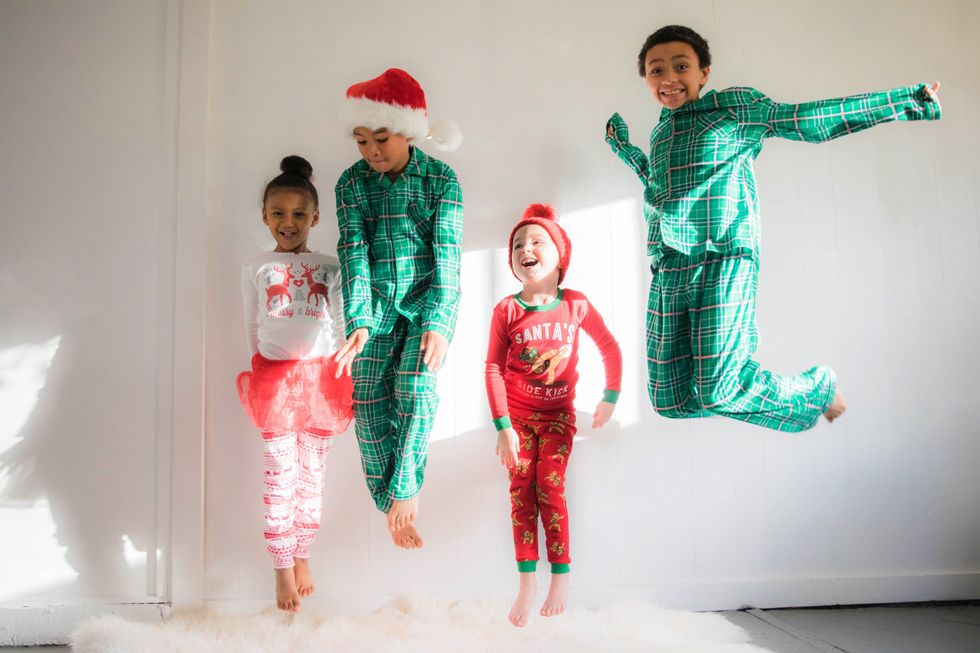Ever since I read Brandon Stanton’s Humans of New York posts on Syrian refugees, I've felt the desire to help them. This summer, I decided to put my dream into action and landed a refugee resettlement internship. While I am still new to the field, I have learned more than I ever thought I would, about others and myself. In light of the current anti-refugee sentiment going around, I have decided to start a series on my experiences working with refugees, many of whom are of the Muslim faith, to attempt to open the minds of the American people.
Thus far, I have yet to come across a single refugee that has entered the country with more than one suitcase. They have managed to shove their lives into 26-inch by 18-inch portable rectangles. Compared to the average American--compared to me--they have nothing. Keeping this in mind, imagine my surprise throughout the following interaction.
I wait for the refugee family that I am going to show around the city today, on a bench in the lobby. The wall’s paint is peeling, and the humidity is thick; there is no air conditioning here. I am excited when I see familiar faces; they were in the building last week. I turn to the teenaged Iraqi girl, *Zarra, and tell her (with the aid of Google Translate) that I like her necklace. It’s a black choker with rhinestones, a kind that is very popular in American fashion right now. She smiles broadly, not the first or last toothy smile that will cross her face that day, and excitedly puts it on my own neck. I’m panicked, thinking that Google has once again failed to translate properly. Did it come out as “Give me your necklace?” or “I need that necklace from you?” I frantically type many variations of “Keep your necklace!” into my phone and each time I show her, she cracks up and shakes her head no. An Arabic translator walks by, and I explain to her that I need to tell the girl that while her necklace is pretty, I am not going to take it from her. The translator relays the message, but the girl still shakes her head no with a smile. The translator tells me that it is part of her culture, that if a person compliments one’s possession, they offer it to them as a sign of friendship. Because gifts represent friendship to them, the monetary cost of the object isn't taken into consideration. I am stunned.
*Zarra might only have one necklace. Her shoes don’t fit her properly, and her shirt is too small. Her sister’s top is hole-ridden, and her dad can barely walk and is aided with a cane. They have only been in the U.S. for two weeks and brought with them virtually nothing, yet *Zarra wants to give me, a girl she has only formally met two minutes ago, what may be her only necklace. I must admit that this is difficult to digest. While I am not nearly as materialistic as I used to be, I still struggle with even sharing shoes with my own mother, even though I know that I will get them back at the end of her workday. Yet here is a girl, two years younger than me, who is offering a total stranger one of her few possessions.
Not only do her actions defy the American norm, but they deeply go against how refugees or even just how Muslims and Arabs are portrayed in our media and society. There was no evil, vengeance, or anger in her eyes, or in the eyes of any other refugee, Arab, or Muslim that I've ever met. *Zarra’s actions show the beauty of her soul and her culture. She's young but possesses more wisdom than I can ever hope to achieve. She knows the insignificance of material items, yet understands the value of relationships and friendship. Today I was touched by the kindness of a refugee, and I hope more Americans open their hearts to the warmth that the refugees carry with them from across the world.
*To protect the identity and privacy of the refugee, her real name has been concealed.
















